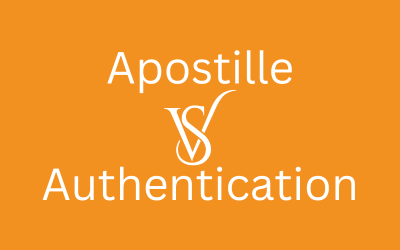What is an LLC?
A Limited Liability Company is a business entity that provides personal liability protection to business owners (known as “members). It has few ongoing business compliance requirements and offers tax filing simplicity because the LLC’s income and losses flow through to the owners’ personal tax returns (pass-through taxation).
LLC members are not on the company payroll, so money paid to them is not considered a tax-deductible expense. LLC members must pay income tax and Social Security and Medicare tax on the business’s profits — even monies they have taken out of the business as owner’s draws.
What is an S Corporation?
An S Corporation isn’t a business entity per se, but rather a tax classification that a qualifying LLC or C Corporation may apply for by submitting Form 2553 (Election by a Small Business Corporation) to the IRS. LLCs that elect S Corporation tax treatment usually do so to lower the business owners’ Social Security and Medicare tax burden. If an LLC operates as an S Corporation, the members pay Social Security and Medicare taxes (FICA) only on the pay they receive via the company payroll. Any profit distributions from the company are subject to income tax but not FICA tax. An LLC taxed as an S Corporation is still a pass-through tax entity — taxes flow through to the business owners’ personal returns — but there is some additional tax-filing paperwork required.
When C Corporations elect S Corporation tax treatment, they usually do so to eliminate double taxation. Unless a C Corporation opts for the S Corporation classification, some of its profits will be taxed twice — once at the corporate level when the profit is earned and then again at the individual level on dividends paid to shareholders. As an S Corporation, profits and losses flow through to the shareholders’ personal tax returns and income is not subject to corporate income tax.
Can an S Corporation Own a Single Member LLC?
Yes. A single-member LLC is a limited liability with a sole member. It is considered a “disregarded entity” for tax purposes. In other words, it is taxed on a pass-through basis like a sole proprietorship.
Can an S Corporation Own a Multi-Member LLC?
A multi-member LLC is a Limited Liability Company with more than one member. It is taxed on a pass-through basis like a partnership. An S Corporation may own (a.k.a. be a member of) an LLC.
Are There Any Restrictions on an S Corporation Owning an LLC?
Fortunately, the LLC structure does not have many ownership limitations. State laws vary, but in most an LLC may have any number of members who can be individuals, S Corps, C Corps, other LLCs, and even foreign entities. Most states also allow flexibility in how an LLC’s profits distributions are determined. While an S Corp’s profits must be divided proportionally to each shareholder’s ownership interest in the company, an LLC’s profits may be distributed disproportionately if its operating agreement declares so.
How many LLCs can an S Corporation own? An S Corporation may have up to 100 shareholders. So, in theory, an S Corporation could own 100 LLCs if it doesn’t have any other shareholders.
By the way, if you’re wondering if an LLC can own an S Corporation, the answer is it depends. S Corporations may only be owned by individuals (or in some instances trusts and estates). Generally, other business entities may not own them. However, while a multi-member LLC (because it’s considered a partnership) may not be an S Corporation shareholder, a single-member LLC taxed as a disregarded entity (i.e., an individual) likely may be allowed to own a stake in an S Corp.
Why Would an S Corporation Own an LLC?
An S Corporation may find it advantageous to own an LLC under certain circumstances:
- Expanding its brand to new markets or introducing new product lines – Forming an LLC under an S Corporation enables a business to diversify while establishing a separation between its core business and the new venture.
- Protect valuable assets from liability – Another potential benefit of an LLC as a subsidiary of an S Corporation is when the business owners want to protect valuable assets from creditors. Companies will sometimes create an LLC for the purpose of transferring ownership of assets to keep them separate from the parent company in the event the parent company runs into legal or financial troubles.
- Have flexibility when distributing profits – An S Corporation must distribute profits in proportion to its shareholders’ capital contributions. In an LLC, the business owners may divide profits according to factors other than members’ monetary investments in the company. This can help make things more equitable if a member is doing more than other members related to managing and operating the company but hasn’t invested as much money in the company. In the LLC Operating Agreement, the members can agree to distribute profits in a way that recognizes both kinds of contributions to the LLC’s success.
Regardless of the reasons for forming an LLC under an S Corporation, business owners should consider the legal and tax ramifications carefully. It’s beneficial to discuss the pros, cons, and nuances with an attorney and accountant or tax advisor.
Learn More About Your Business Entity Options
Business Structure Wizard
Choosing a business structure can be a tough decision for the new business owner. That’s why CorpNet created the new Business Structure Wizard. This easy-to-use free online tool helps small business owners navigate the process of picking the right business structure for their small business.






